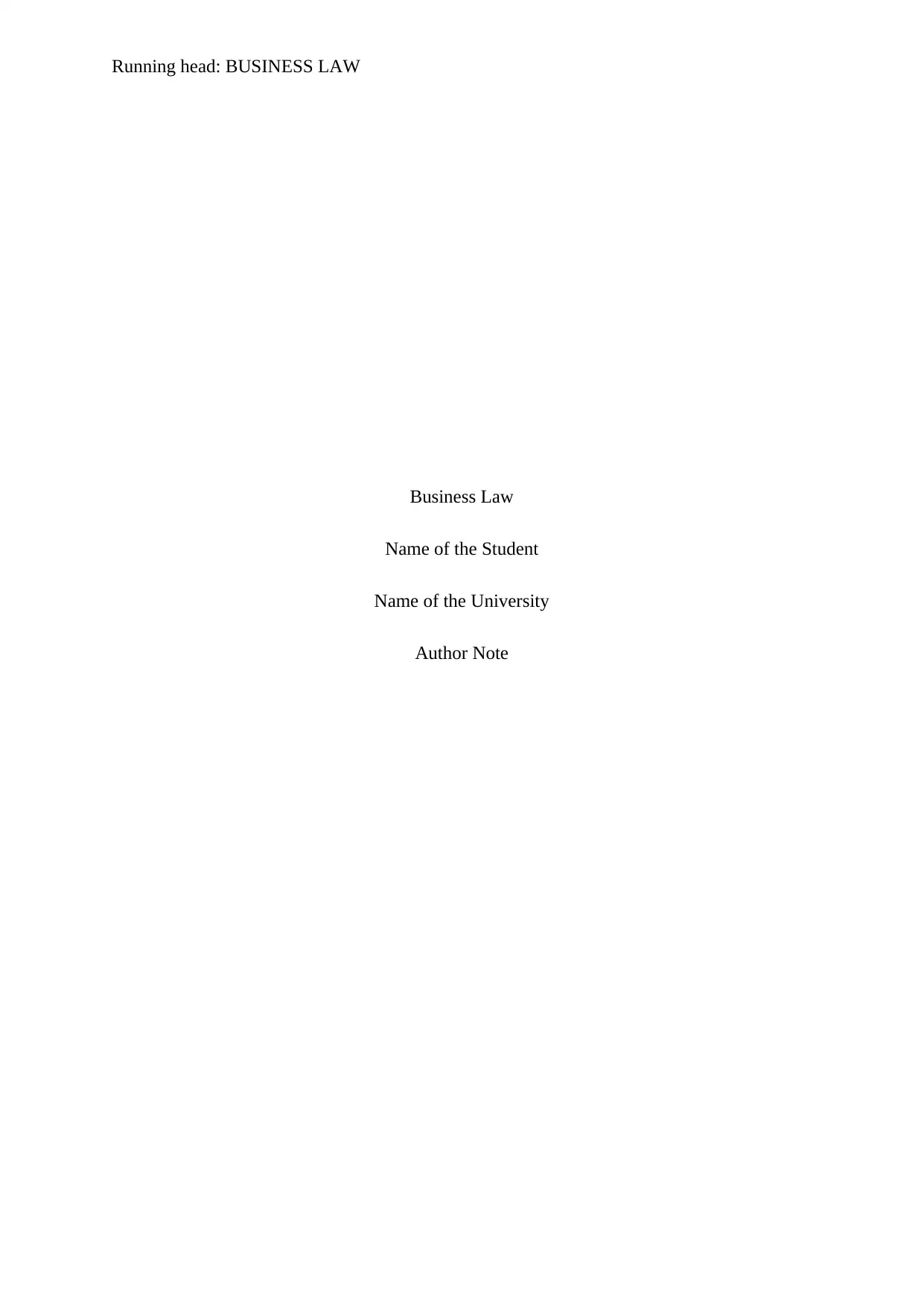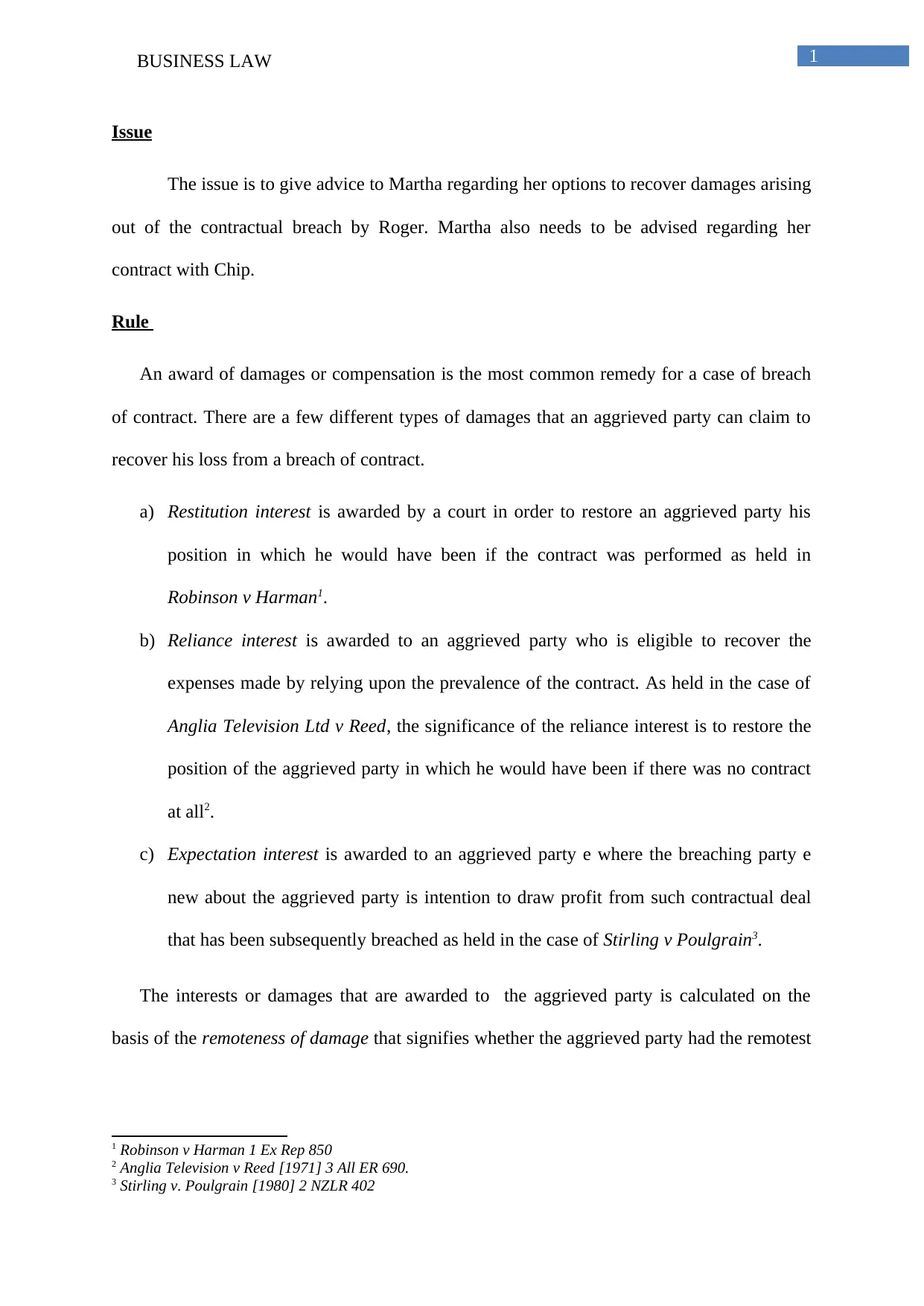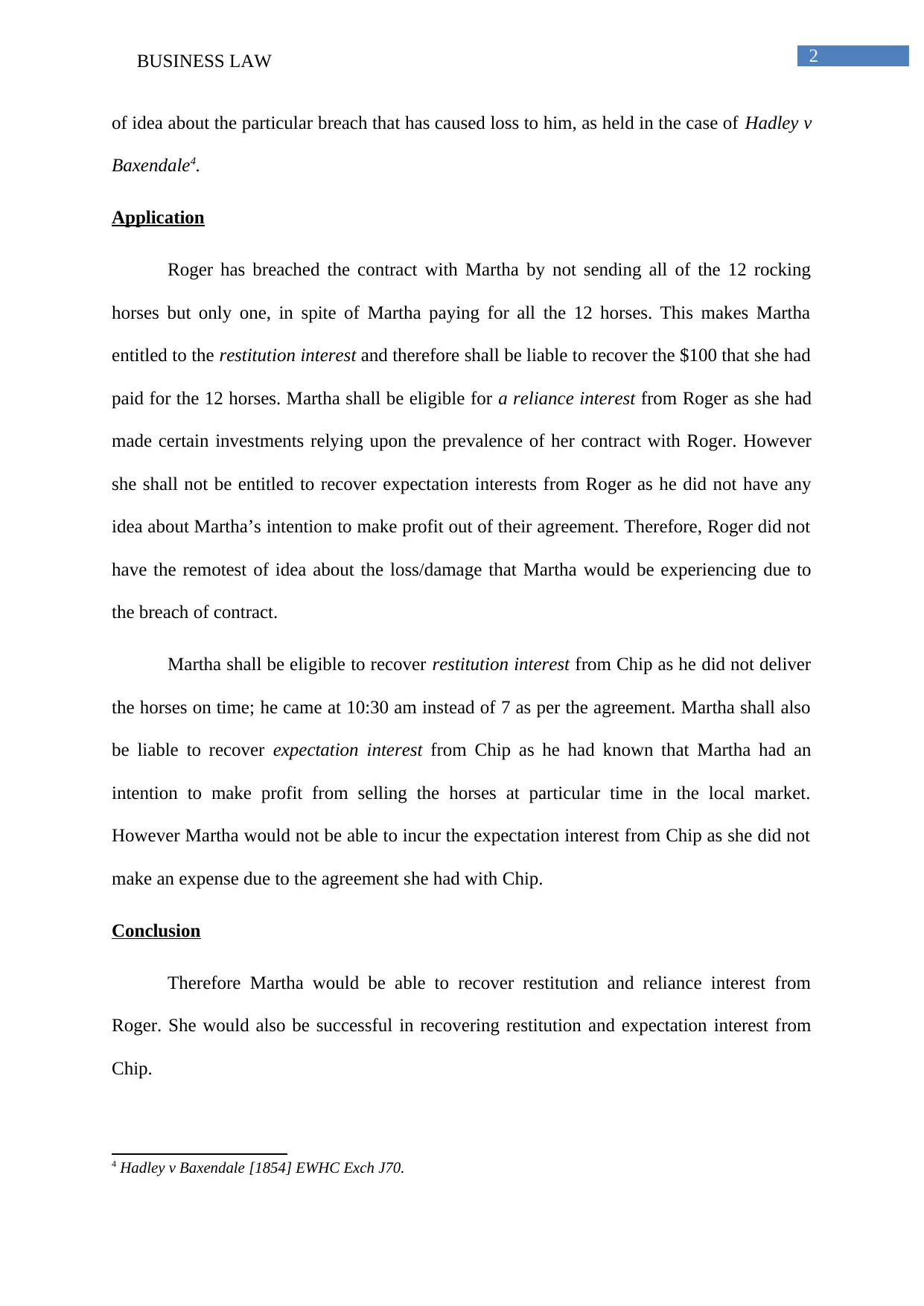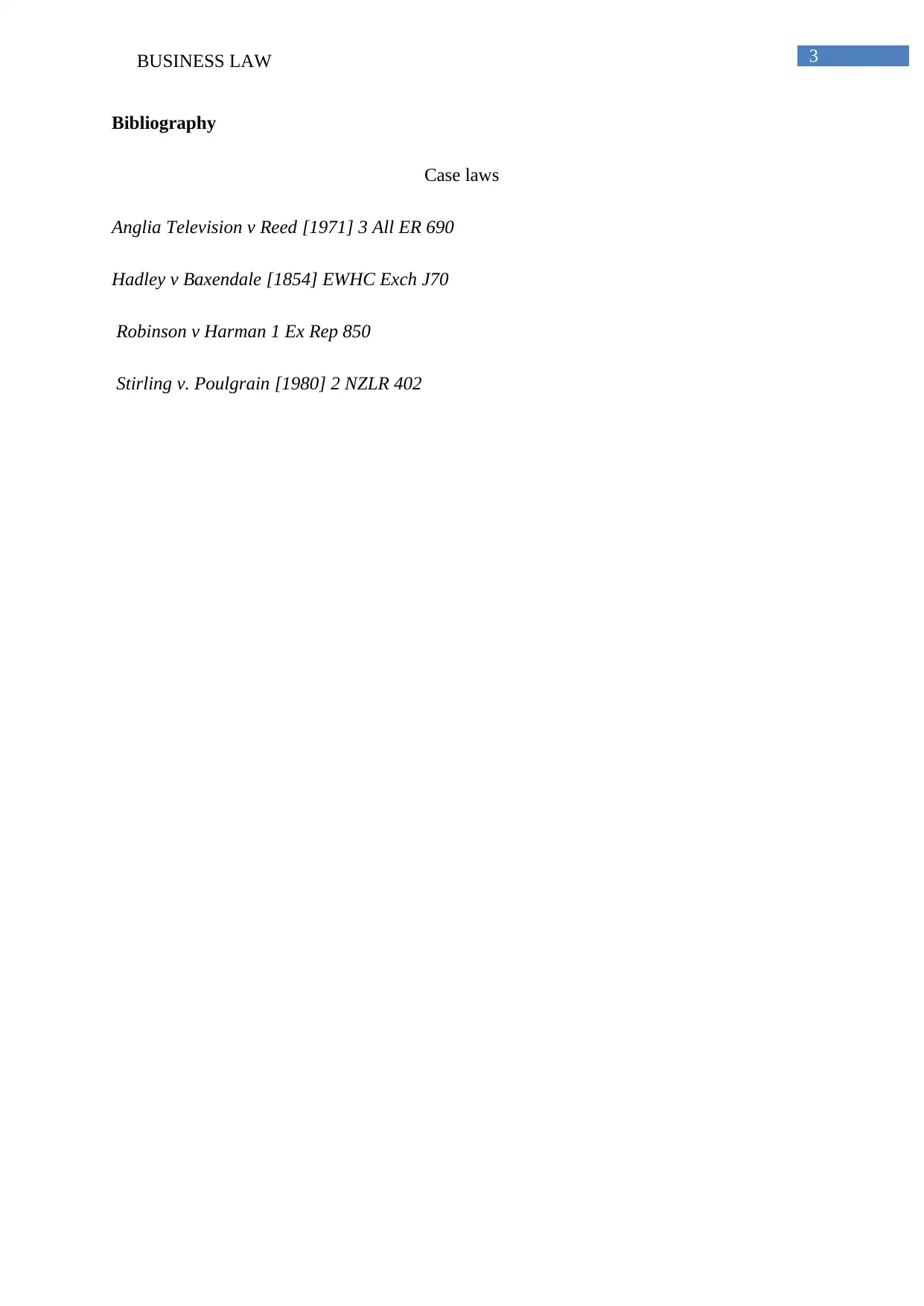Business Law: Contractual Breach and Damages Case Study Analysis
VerifiedAdded on 2022/11/19
|4
|603
|299
Case Study
AI Summary
This case study analyzes a business law scenario involving Martha, an entrepreneur, and her contractual agreements with Roger and Chip. Martha purchased rocking horses from Roger but only received one instead of twelve, leading to a breach of contract. She also hired Chip for delivery, but he was late, further impacting her business plans. The assignment examines Martha's options for recovering damages, focusing on the types of damages she can claim, including restitution, reliance, and expectation interests. The solution applies legal principles to determine Martha's eligibility for each type of damage from both Roger and Chip, considering the remoteness of damage and their knowledge of her intentions. The analysis provides a clear conclusion on the potential recovery for Martha in both contractual disputes, offering insights into contract law and remedies for breach.
1 out of 4










![[object Object]](/_next/static/media/star-bottom.7253800d.svg)